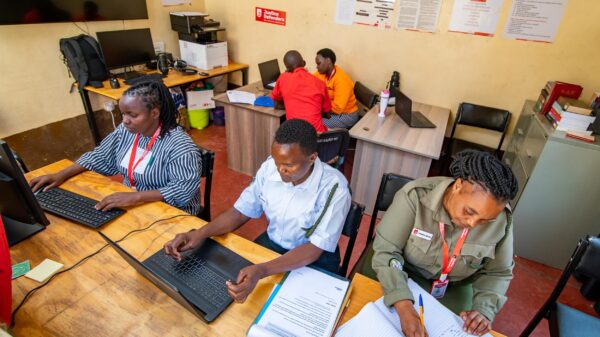In an attempt to curb cheating during national examinations, Kenya’s Ministry of Education has banned parents, and others, from visiting students at boarding school. The Conversation Africa’s Moina Spooner asked Callen Nyamwange to explain what lies behind the cheating crisis at Kenya’s schools and what can be done to prevent it.
How prevalent is cheating in Kenya’s schools?
Although cheating in education systems isn’t new, its prevalence has risen significantly over the past 30 years.
It comes in many forms, from prying over a colleague’s shoulder to steal answers, to individuals – like teachers – selling exam or marking papers. A report on last years’ Kenya Certificate of Secondary Education exams by the Kenya Examinations Council showed that teachers and candidates work together to beat the system, and sometimes use mobile phones to transmit exam related material.
Because it’s done undercover, it’s hard to assess how prevalent cheating is and catch those that do.
Even so, there’s a worrying increase in the detected cases. The number of Kenyan students caught cheating and punished by the national examination body during the Kenya Certificate of Secondary Education exams in 2015 was less than 1% – or 5,101 candidates. This was 70% more than the 2,975 identified in 2014.
What about the fallout?
The impact of cheating is wide-ranging.
One possible effect is the withholding or cancellation of exam results. This is a decision that can be taken by the exams council. Over the past three years, the exam body has canceled results for over 9,000 students.
Another potential outcome is prosecutions. Cheating is a criminal offense. If convicted of accessing examination materials and revealing their contents knowingly, individuals face the risk of a five-year jail term or a fine of Sh5 million (USD$ 50,000).
Longer-term effects are that the exams council can refuse to rank the school and that the students aren’t properly assessed, don’t study, don’t perform, don’t get into university and don’t provide a skilled workforce.
Unfortunately, most reported exam cheating cases have gone unpunished because of inefficiencies in the management of exams. This has given cheating a chance to thrive.
Speaking more broadly, the failure to eradicate exam cheating is akin to rewarding mediocrity and creating a society that doesn’t value honesty and hard work.
What does your research show about why students cheat?
To address the root causes of cheating, it’s important to know why it happens.
My research focused on why students cheat in national examinations. I conducted interviews in Masaba south, Kisii County – western Kenya. The research shows that exam cheating is influenced by several factors. The most prevalent were:
- Poor preparations for exams (32%)
- Pressure from parents, teachers, peers, and society to produce good grades (21.6%), and
- Ensuring they made it to the next level of schooling, beating stiff competition (13.8%).
The students also mentioned that poor invigilation of exams (9.6%), a lack of essential facilities like libraries and laboratories (8.7%) and a lack of confidence (7.5%).
What measures have been taken at national and school level to address it
There are laws on Kenya’s statute books that stipulate stiff penalties, including jail time and fines. But they aren’t used because the management systems are weak. These need to be strengthened.
Over the last couple of years, the ministry of education has taken steps to try and reduce the levels of cheating. In a bid to cut contact between candidates and outsiders it has banned a range of activities at boarding schools such as prayer days, family visits, half term breaks, sports, prize giving ceremonies and annual general meetings. There are 8,592 public secondary schools. Nearly half of these are either full boarding schools or have a boarding section.
The ministry also shortened the exam period for the Kenya Certificate of Secondary Education from six weeks to four and put head teachers directly in charge of the tests in their respective schools. The aim is to shorten the window of cheating opportunity and to have the head teacher be directly accountable.
Are they working? What else could be done to prevent it?
It’s still too early to assess the effectiveness of these new measures. But it’s safe to say that there are still substantial system and systemic failures.
Some alternative approaches that schools could take include:
- Setting up an internet firewall to prevent students from exchanging e-mail and instant messages that might contain exam questions or answers
- Ensuring students submit their papers to a plagiarism check
- Creating a school honor code that recognizes ethical behavior and defines academic misconduct
- Ensuring parents are kept informed and part of the process to ensure ethical behavior at home, and in the classroom
- Encouraging parents to support the students, rather than exert too much pressure on them to succeed
- Ensuring parents stay involved in their teen’s academic life by reviewing their homework and reading their essays
- Creating ways for kids to identify cheaters anonymously, and have teachers develop multiple versions of tests to deter students from sharing answers via text messaging
Ultimately, schools and parents must work together if we are to have a chance at beating the cheating scourge.
Callen Nyamwange, Lecturer in Psychology, Kisii University
This article was originally published on The Conversation. Read the original article.
![]()








































